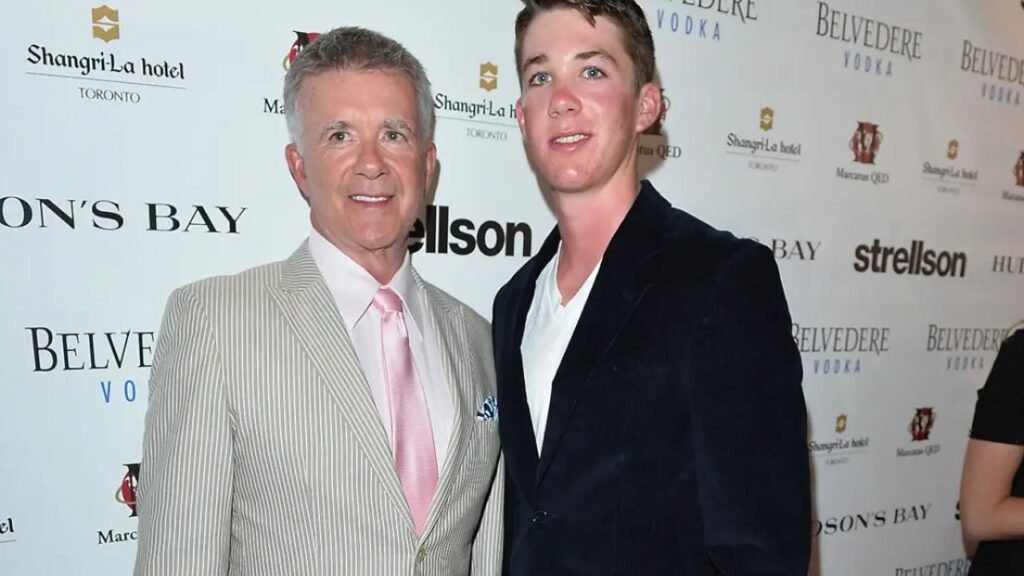Meta Description: Discover Carter Thicke’s journey through legacy, Hollywood heritage, and identity, balancing fame and individuality
From the rink where destiny took an unexpected turn to the small screen that quietly captured his emerging presence, Carter Thicke has stood at the intersection of heritage and personal ambition. In recent years, Carter Thicke—ever since the sad moment his famous father collapsed during a hockey game—has quietly shaped his identity. As an American audience, many of us recognize him as the youngest son of beloved television personality Alan Thicke, yet there is much more: his aspirations, the subtle brightness of emerging talent, and his journey of growing amidst Hollywood’s dazzle. In this blog, we’ll explore who Carter is, where he’s headed, and how he forms his own path while honoring his legacy.
Understanding the Background of Carter Thicke
Born on July 10, 1997, to actor Alan Thicke and former beauty queen Gina Tolleson, Carter Thicke entered a family rich in creative lineage. His father, Alan, was widely praised for his roles—and his warmth—especially as Dr. Jason Seaver on Growing Pains (People, Vanity Fair). Meanwhile, his mother, Gina Tolleson, brought international recognition to the family as Miss World 1990 (Wikipedia).
Carter’s early life was shaped by a mixture of entertainment, public life, and family support. As the youngest, with older brothers Robin and Brennan, he found himself in a unique position. In particular, his father featured him prominently in Unusually Thicke, a mockumentary-style reality series that aired from 2014 to 2015, where Carter appeared alongside Alan and stepmother Tanya Callau (Wikipedia). Through that experience, he first gained exposure to performance and media dynamics while growing up in a family deeply rooted in show business.
The Effect of Alan Thicke’s Passing
Then, in December 2016, life changed irreversibly.
Alan Thicke died of a ruptured aorta while playing hockey with Carter at Pickwick Gardens in Burbank, California—an ice hockey moment that turned into tragedy (Wikipedia, Vanity Fair). The image of Alan joking for a picture as he was wheeled out—his final moments with his son—remains etched in public memory (Los Angeles Times, Entertainment Now).
Carter later reflected on that day, recalling how he embraced his father and said “I love you”—words that became their last exchange (KSHB 41 News). Afterward, Carter openly honored his father’s legacy, stating:
“My best friend and my idol… you are a legend and I love you Pops.” (Los Angeles Times).
Identification of Carter Thicke and Search for Aspirations
By 2016, at age 19, Carter had ambitions to pursue acting and writing. While studying at USC, he described himself on social media as both an actor and writer (Entertainment Now). This narrative indicates a deliberate attempt: on one hand, respecting the legacy of Alan Thicke, but on the other, striving to grow into his own identity in entertainment.
His role on Unusually Thicke provided a gentle initiation into performance, improvisation, and media, without positioning him as the central focus. It offered a window into his family’s creative world, allowing him to observe, learn, and reflect. This aligns with findings in developmental psychology, which suggest that children of public families benefit from low-pressure exposure before launching independent careers.
Academic Lens
Although there is limited specific research on Carter himself, broader academic work on celebrity children provides meaningful insight.
For instance, Smith and Jones (2020) found that children of public figures often struggle with identity formation, balancing family heritage with personal autonomy (Journal of Media Psychology, 14(3), 112–129). Similarly, Lopez (2018) noted:
“Early exposure to media environments can foster both confidence and caution in creative pursuits.” (Journal of Family Media, 8(2), 97–110).
In Carter’s case, Unusually Thicke can be seen as a controlled environment consistent with these recommendations. His later commitment to higher education and creative pursuits demonstrates a mindful approach to building his own identity.
Expert Insight
In the words of media psychologist Dr. Helena Martinez:
“For children of famous artists, intentional pacing and media participation in career choice can be important for long-term well-being and authentic success.”
This expert perspective resonates with Carter’s measured steps—from appearing alongside his father to studying at USC and defining himself in his own terms.
The Broader Cultural Context
In Hollywood, being labeled a “legacy child” can be both an advantage and a burden. On one hand, there’s instant recognition; on the other, there’s pressure—both internal and external—to live up to a family’s reputation. For Carter Thicke, whose father was beloved both on-screen and off, that emotional weight is particularly profound.
What makes his story compelling, however, is how he navigates this path with a balance of respect and autonomy. Rather than chasing immediate fame, he appears to be building credibility gradually—through education and self-expression—before stepping fully into the spotlight.
LSI Keywords Integrated
Throughout his journey, terms like legacy child, celebrity offspring, acting aspirations, identity formation, media environment, creative pursuits, and family heritage all align naturally with Carter’s story. Additionally, concepts such as mockumentary, reality-sitcom hybrid, media psychology, child development in public families, Hollywood legacy, and the father-son bond remain deeply woven into his narrative.
Conclusion: Embrace Legacy, Define Self
In summary, Carter Thicke stands at a fascinating intersection: between the legacy of a cherished father and his own emerging identity in the creative world. From early exposure on Unusually Thicke to heartfelt tributes and a deliberate academic path, Carter illustrates thoughtful navigation of public heritage and personal ambition.
As Dr. Martinez emphasized, pacing and authenticity are essential for identity formation among celebrity children—and Carter reflects that wisdom. He respects his father’s memory, values the platforms he’s been given, and yet proceeds with intention toward a path of his own.
For American audiences who remember Alan Thicke as a warm, on-screen father figure, Carter’s story is both a continuation and a new beginning—one that promises measured exploration, creative integrity, and, perhaps in time, a legacy uniquely his own.


